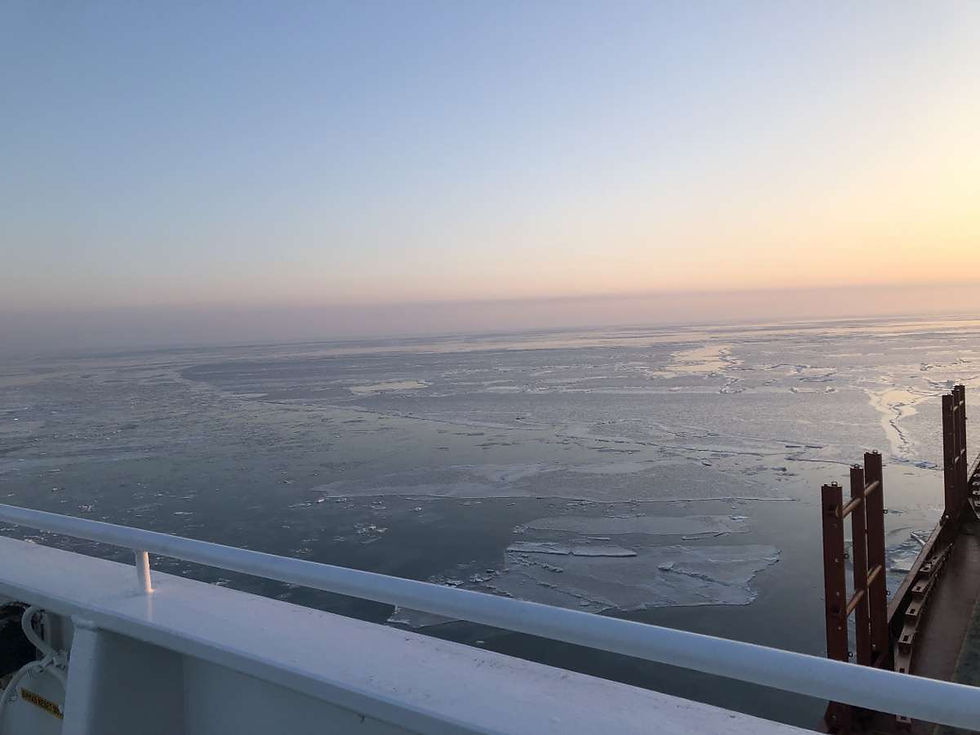What are the top best demurrage practices in your routine?
- Jul 6, 2023
- 3 min read

Thanks to Voyagerhttps://www.voyagerportal.com/ for raising this interesting question and considering my brief comments below on this exciting topic.
Question: “What are the best practices you apply in your routine while working with demurrage?“
One must paint the whole picture of demurrage; knowledge of the entire process is key to establishing and applying proper practices while working with demurrage. Therefore, the “Applied demurrage practices” should be checked against the whole process: from pre-fixture negotiations to dispute resolution and process evaluation & improvement to add value.
To address this question and for easy reference, the above image briefly illustrates the demurrage practices in my routine. In particular, it highlights the need for (i) good knowledge and understanding of market & trade practices, (ii) teamwork, i.e. collaboration with various departments within the company and 3rd parties, e.g. port agents, experts, P&I Correspondents, etc.,(iii) proper ship-shore communication and (iv) continuous process evaluation and improvement that adds value. Finally, on the right side, it reflects the whole process of demurrage, as follows.
Pre-Fixture: consider amendments or incorporation of clauses or commercial terms to the contract; potential ambiguities or inconsistencies lead to disputes. Keep up to date with market changes and developments, e.g. new proposed clauses (see BIMCO) given the evolving emissions regime or for other matters, case law and arbitration awards, P&I Club circulars, seminars, etc. Pay attention to specific details or limitations about the expected employment by making proper inquiries to agents or other parties. For example, the delays at the JCC inspection area before or after leaving Black Sea caused significant demurrage disputes, the new proposed clauses dealing with decarbonisation require further consideration, etc.
Post-Fixture: follow up with other departments on the proper performance of the contract, with particular consideration to notice provisions, cancelling clauses, Vessel’s nomination clauses (TBN) within the agreed periods and reconfirmation/substitution by other parties, compliance with the specific warranties given under the contract, declaration of port rotation (if any), etc. Also, guide the master constantly and ensure compliance with the instructions: when and where to tender NOR, whether to increase speed to arrive within a specific date/ time to tender NOR, inaccuracies in SOF or remarks to be inserted timely before the ship’s departure, documents to be submitted or evidence collected concerning potential disputes, etc.
Demurrage Collection: comply strictly with time bar provisions, pre-conditions to pay demurrage, interim payments of demurrage, proper submission of documents along with your demurrage claim and consideration of special agreements upon preparing laytime calculations, e.g. cross-check with the Vessel’s operator and chartering team before issuing the demurrage statement. For example, the parties agreed to amend the laycan dates with NOR to be tender earlier or added another port of loading or discharging (reversible, shifting time?) or declared the demurrage rate with the Vessel’s nomination/ acceptance or reached a special agreement when the Vessel waited for orders or during the period of delay given that Owners exercised a lien for unpaid freight, etc.
Dispute Resolution: this may become more complex and depends on many factors not referred to below. Again, it requires collaboration with other departments because, in most cases, the parties may settle easier when the commercial departments discuss the issue directly and preserve business relations. When this fails, how to resolve the dispute is a matter of further consideration having regard to the disputed amount, the dispute resolution options and the counterparty. Therefore, the dispute resolution provisions should always be carefully considered as these provisions may affect the party’s right to recover or significantly delay the claimed demurrage collection. For example, in some cases, the relevant clause contained pre-conditions to arbitrate, which prolonged settlement and payment of demurrage. In other cases, the clause was poorly drafted or included procedural arbitral rules unfamiliar to the parties. These prompted settlement after making discounts on the claimed demurrage amount.
Entire Process Evaluation: highlight both the drawbacks and benefits of the process; continuous evaluation and feedback are essential features of this vital stage. Suggest potential corrective actions to prevent mistakes in similar cases, e.g. issues with contract drafting/ interpretation, lack of proper communication with the ship for SOF matters or other voyage instructions or collection of evidence in similar disputes, etc. Notably, I focus more on evaluating and improving the entire process; based on experience, this is an often neglected part by the parties leading to the same mistakes repeatedly. Besides, this is not without its challenges; likely a topic for another discussion.
*The above list is not exhaustive.


